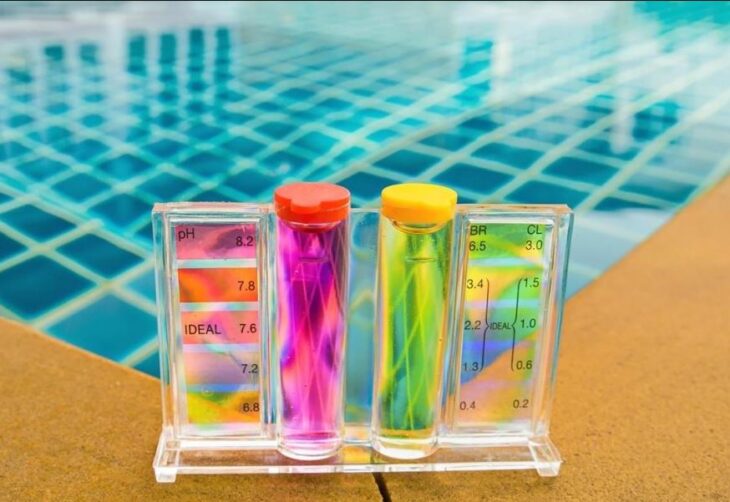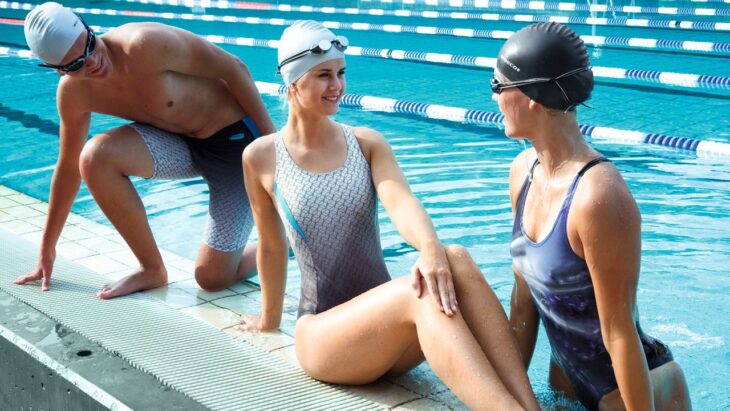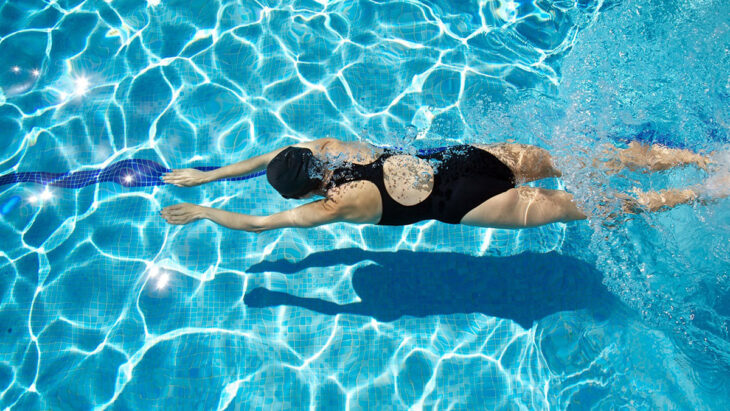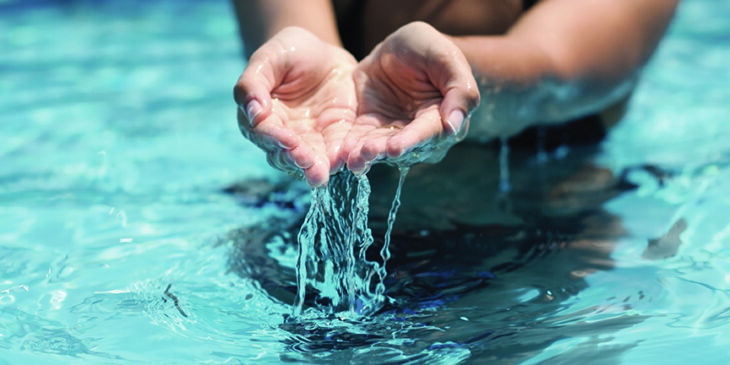Are you afraid of swimming? Or do you think that it affects your skin? Well, sometimes it might not be very pleasant for you just because of chlorine water. Swimming can be risky for your skin and health.
A lot of people get offended and quit swimming which is not acceptable. No one has to stop swimming just because of some reason. It would help if you had to run down from all the safety tips about swimming. So, you won’t stop swimming.
As you know, chlorine must be added to water in swimming pools. It is necessary to add it. We can’t neglect this step. Chlorine water can lead to cancer and other diseases like skin rashes, redness, itching, and rough skin.
Many people out there notice the symptoms rarely, which means they are not allergic to chlorinated water. But for those who see the signs, you should follow all the safety habits before swimming. According to Trihard, chlorinated water also affects your hairs. You can lose the shine of your hair and damage ends.
It’s hard to believe, but this can happen.
But no more worries about it because now you are going to learn some precautions before swimming. You can swim without any fear of allergic reactions. You must add them to your habit before swimming. Without any further ado, let’s begin to learn how we can be safe from swimming in water.
Contents
Measure chlorine level

Source: webshop.swimmingpools.be
It is essential protection. In swimming pools, there must be a fixed level of chlorine added into the water. Don’t exceed the level of chlorine. If the amount gets high, then you are in danger. Your skin gets affected through it.
Remember to add the amount which is required to add. Check it carefully, and don’t let anyone add it. Only professionals are allowed to test the level. It is a difficult task to do so, don’t risk your life. Attempting your skin by over-adding the chlorine is not in good health.
Use glasses
Glasses are essential for swimming; you can’t miss them out. It is so important to wear because it can prevent your eyes from the chlorine present in water. The chlorinated water is very harmful to the eyes. It can cause you itching and another effect. To prevent the water from getting in the eye, many swimmers use to wear glasses while swimming.
You can’t just jump into the pool without wearing it. It harms your eyes by causing redness. Swimmers are more likely to grab their essentials first then begin their swimming. Those people who don’t go swimming are likely to wear glasses. Those who cannot get to wear the glasses seem to have side effects.
Proper swimsuits

Source: beco-beermann.com
Swimmers mostly wear the swimsuits before going swimming, which helps them get rid of the chlorinated water as you know how harmful the chlorinated water is with attraction to the skin.
You might feel the irritating sensations after swimming which is because of swimming.
It would help if you tried to build a habit to wear a proper suit and prepare yourself for the water. The chlorine is added to the water to save you from other effects, but the addition might link with different reactions. Tell the newbie’s to avoid wearing only shorts. Rather then they must wear the proper suits.
Use the ointment
Some of you know that you get the reaction after swimming because of the swimming. So, the next step is that you must find an ointment or cream which helps you prevent the chlorine. The cream or any other lotion that helps your skin to be in the actual condition seems helpful. The swimmers out there are aware of them and apply them before they get into the pool
Some of them apply after swimming because continuous swimming makes your skin rough and dehydrated. To avoid dehydration and rough skin, you should use the cream to be hydrated and soft after swimming.
Swimming duration

Source: swimming.org
The time of swimming also matters because continuous swimming is not appropriate. You must limit your swimming duration. Swimmers usually swim at least 2-3 hours regularly, and this is quite fair. It is not dangerous for your health. But if you exceed this time limit, you get tired, and this continuous attraction with the chlorine leads you to cancer.
Swim only the time which you can bear and which you can easily swim. Some local swimmers who don’t swim regularly get excited and swim more than the limit develop the symptom of chlorinated water reaction.
Take a bath after swimming
To avoid any reaction, another way to get rid of the chlorinated water is to take a bath after swimming. When getting in contact with the body, the swimming pool water makes it much rough and stiff.
So, it would help if you grabbed all the essentials with you. After swimming, it is essential to take a bath and wash all the chlorine from your body. Don’t wait; rush to get a shower as soon as possible. The more the chlorine contact lasts, the more you get effects.
Clean water

Source: mcburneypools.com
At least you should change the swimming pool water regularly. It is very harmful not to change the water. The chlorinated water is more affected to your eyes and hairs. So if you don’t change the water regularly, then reactions increase. Take a step further and make an effort to change the water.
Cleaning the water is another way to stay safe from water. Clean water can increase the audience for swimming. Mostly the cleaning is done right after you have done the swimming. Cleaning the water or cleaning the swimming pool after swimming is an important step. The official swimming areas must be clean after and before swimming to spread cleanliness.
Conclusion
I hope the above mentioned precautionary measures after and before swimming helps you to prevent infection. These safety tips are beneficial for you. Don’t forget to take these preventive measures. Increase the use of these, and then you might have safe swimming.
